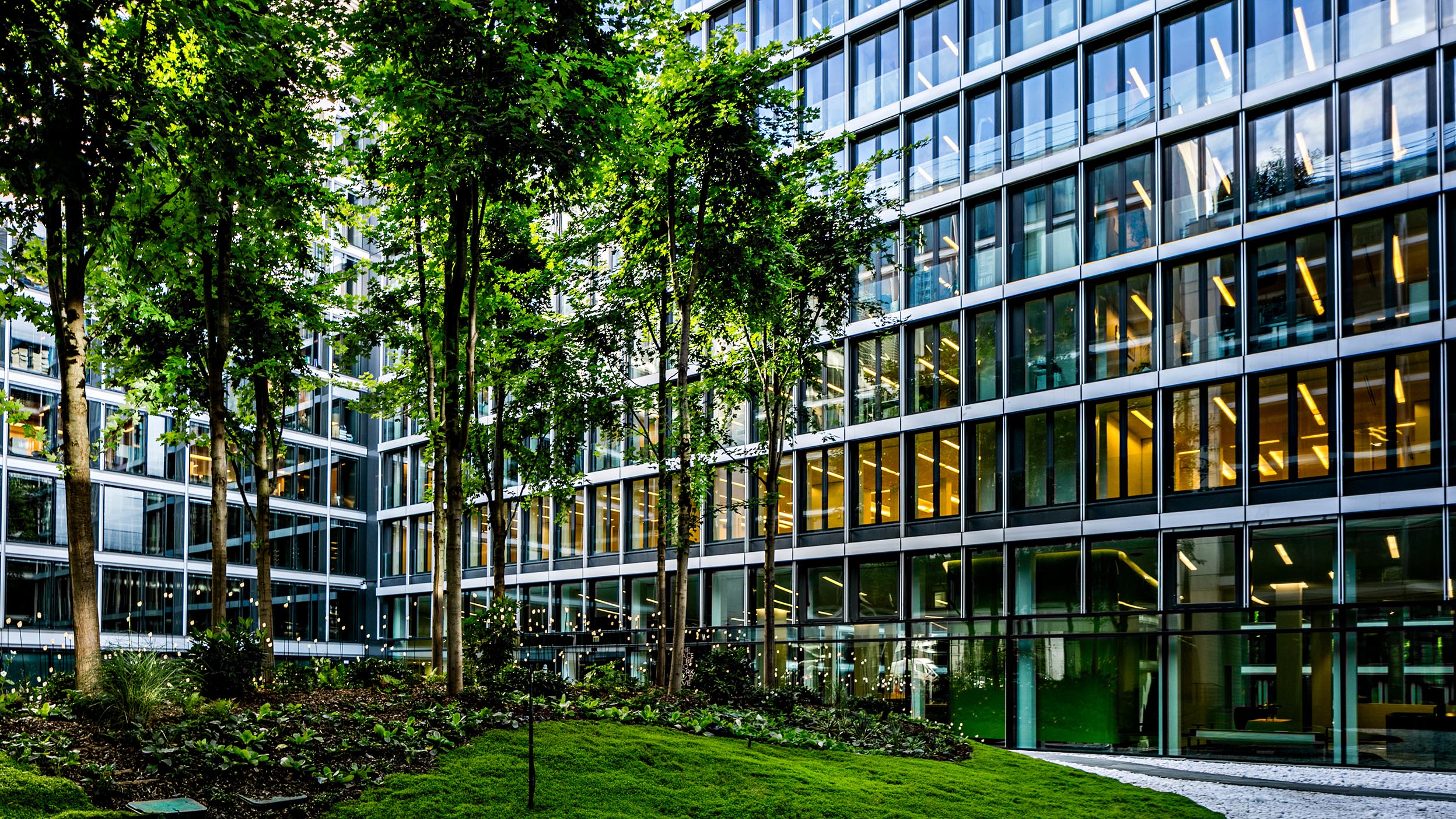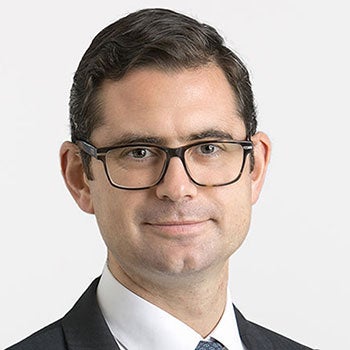European offices: Ensuring sustainability and future values

Key takeaways
1.
2.
3.
Our conviction on the sustained long-term demand for high quality offices results in no small part from detailed conversations with market participants, including both those who directly advise on real estate, as well as strategy consultants helping organisations optimise their operational requirements.
These discussions confirm that while many occupiers are examining their existing office exposures, almost all are increasingly focussed on location, quality, and efficiency of the space they use.As such, contrary to certain headlines suggesting that the work-from-home (WfH) experiment will result in major long-term reductions in office usage, we find that occupier and investor demand for core assets in central locations is set to remain strong. Further, we believe that the longer that lockdowns force WfH for office employees, the stronger the desire by both employees and employers to return to the interactive environment offered by the office.
Sustainability is at the top of the agenda
While COVID-19 has drawn out a number of questions as to how occupiers will use offices going forward, through the pandemic we have seen sustainability continuing to take an ever-larger mindshare for all real estate market participants. At first glance, COVID-19 appears independent of concerns around climate change, but the pandemic has brought into sharp focus issues of well-being within buildings, and has led to both office tenants and their staff increasingly prioritising the health and well-being of employees and visitors to the properties.
As the world rightly works towards a plan to reduce carbon emissions, real estate has a significant role to play in delivering this. At Invesco Real Estate (IRE), we are very pleased to have set a "Net Zero Commitment", aligning with Invesco Ltd.’s long-term commitment to the Institutional Investors Group on Climate Change (IIGCC) target of 100% net zero emissions by 2050. In addition, to accelerate progress towards this target, IRE has announced a target to reduce Greenhouse Gas emissions from our portfolio by an average of 3% per year 2018-2030, thus reducing our 2018 baseline emissions 36% by 2030, and 100% by 2050.
To achieve this, across our global business we are working hard to monitor major consumption parameters including energy, water and waste, with a strong focus on driving further improvements. Across the real estate industry, control of these factors is endorsed through green building certifications from agencies such as LEED and BREEAM, and from fund rating systems such as GRESB. This drives an increasing pressure to identify cost effective upgrades to improve building efficiency, both in terms of the financial cost but also examining the upfront carbon cost of carbon reduction initiatives. This array of considerations is already driving initiatives such as green lease clauses in leases which promote environmental initiatives among tenants, and green loans which afford lower cost financing for properties which deliver environmental benefits.
This commitment drives a clear strategic conclusion for our European real estate business, driving the selection criteria for all property types, not only office assets. We are seeking to only invest in assets which either already meet high Environmental, Social, Governance and Resilience [ESG+R] standards, or where there is clear scope to improve and where that improvement forms a central tenet of our business plan for that asset. To this end, we also carefully consider the embedded carbon within assets, seeking to minimise the need to inject additional carbon though redevelopment activity, preferring to enhance and modernise existing structures.
However, our strategy is not only about environmental emissions. COVID-19 has also brought into strong focus factors beyond just the "E" of ESG, not only around wellness of occupiers, but also around how real estate owners are working with tenants and local communities throughout the pandemic, acting as a partner to help usher affected parties through this challenging time. We continue to look to enhance the social impact of our properties, for example with certain assets offering scope for enhanced placemaking to the benefit of communities.
IRE is committed to being a good steward of the environment in a manner that remains consistent with our fiduciary responsibilities to our investors, and we believe that the two considerations are entirely complimentary as financial markets will continue to place increased financial values on assets which are at the forefront of sustainability. As a result, we make ESG+R matters a priority in the way we conduct our business, manage client funds, and sustain the underlying investments.
Investment risks
-
The value of investments and any income will fluctuate (this may partly be the result of exchange rate fluctuations) and investors may not get back the full amount invested.
Important information
-
This document is marketing material and is not intended as a recommendation to invest in any particular asset class, security or strategy. Regulatory requirements that require impartiality of investment/investment strategy recommendations are therefore not applicable nor are any prohibitions to trade before publication. The information provided is for illustrative purposes only, it should not be relied upon as recommendations to buy or sell securities.
Where individuals or the business have expressed opinions, they are based on current market conditions, they may differ from those of other investment professionals, they are subject to change without notice and are not to be construed as investment advice.


